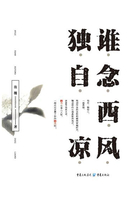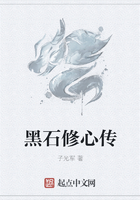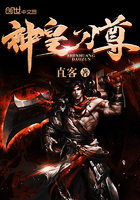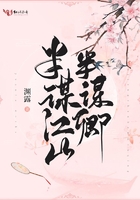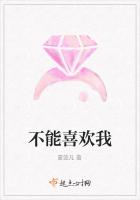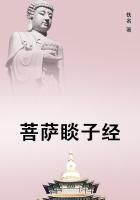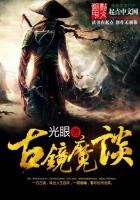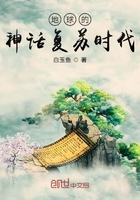After the Prince Fu ascended to the throne, his first action was to reward those “founding fathers” who had been supporting him. Ma Shiying was promoted to Grand Secretary of the Cabinet and was given the title of Defense Minister. The army commanders of the four towns north of the Yangtze River were also granted the titles of Dukes and Marquises. Furthermore, the Prince Fu was aware that Shi Kefa had been strongly opposed to his succession and so he tried hard to squeeze him out of the court. However, to avoid provoking criticism from other ministers and thus losing their favor, he reluctantly promoted Shi Kefa to the Grand Secretary of the Cabinet. Soon afterward, news came that the Ming General, Wu Sangui, had colluded with the Manchu troops, and the joint forces had taken Beijing. Wu’s army was now marching towards the region to the south of the Yangtze River in order to annex it. The Prince Fu and Ma Shiying saw this as a good opportunity to squeeze Shi Kefa out of the court, so they asked him to take charge of the defence of Yangzhou.
Shi Kefa was fully aware of his plight but he did not protest. Instead he obeyed the order and left Nanjing. In the face of a powerful enemy, General Shi Kefa put the interests of the whole above everything else, including his own fate. His plan was to quickly mobilize the troops from the four towns, cross the river and fight the Manchu enemy at as soon as possible.
On the day in question, the commanders of the four towns gathered in Yangzhou under Shi Kefa’s order. However, before they were able to discuss marching northward and fighting the Manchus, the four generals began to quarrel.
One of the commanders, General Gao Jie had previously been a general in Li Zicheng’s peasant army. After he betrayed Li and surrendered to the Ming court, he was appointed as the commander-in-chief of Yangzhou, one of the four towns. Instead of entertaining the commanders from the other three towns, who came to Yangzhou for the meeting, General Gao treated them with utter distain. The other commanders, being reluctant to be placed below Gao in the hierarchy despised him, calling him “a roving bandit and a traitor”. Seeing that the four generals were fighting for status rather than solving the national crisis, Shi Kefa was bitterly disappointed. His warm and patriotic heart turned cold. He did not know how to mediate among the four generals and so he ordered them to return to their posts and wait for orders.
To his surprise, the commanders of the three towns amassed their troops and attacked Gao Jie’s barracks the following day. With larger and stronger infantry and cavalry, Gao Jie fought back and defeated his foe. When he discovered that the commanders were fighting among themselves, General Shi Kefa hurriedly dispatched Hou Fangyu to order the troops to withdraw. Then General Shi Kefa called Gao Jie into his tent and reproached him for inciting this incident through his arrogance. General Shi asked him to apologize to the other commanders and to give the affairs of the nation the top priority. To Shi’s surprise, instead of agreeing to reconciliate with the other commanders, Gao Jie reacted furiously and commanded all of his troops to march south and seize Suzhou and Hangzhou.
Gao Jie led his troops to the shore of the Yangtze River.
Zheng Xuan, the governor of Suzhou, had long been informed of Gao’s movements and had blockaded the river with ships and cannons. Since he could not cross the river, Gao Jie was forced to return to Yangzhou. Meanwhile, the commanders of the three towns had deployed an army to block Gao’s escape route. Gao Jie was thus caught in a vile dilemma and had no choice but to seek refuge with General Shi Kefa.
General Shi Kefa denounced Gao Jie shar ply for hi s capricious behav ior, accusing him of causing rebellion and surrendering at will, as though it were a game. In accordance with military discipline, Gao Jie should have been beheaded. However, seeing that Gao Jie intended to repent and mend his ways, General Shi Kefa agreed to absolve him from this penalty. He then sent him and his army north to fight the Manchu army, who had marched southwards and were soon to cross the Yellow River.
The situation had become critical. Gao Jie was reluctant to leave Yangzhou because the armies from the other three towns could annex him at any time. However, if he stayed on, his position would be even more perilous. Finally, Gao obeyed General Shi Kafa’s order and led his troops to Henan to fight the Manchu invaders.
General Shi Kefa could see that Gao Jie was a brave commander, but that he lacked strategy. He was afraid that Gao might fail his assignment, and so he told Hou Fangyu, “The defence of the Yellow River is critical for the survival of the nation. However, it will be a difficult task for General Gao to rally the forces. What is more, the governor of Suizhou is a cunning man who has ulterior motives and is hard to control. I could never forgive myself if ever the Manchus were to break through the Yellow River line. You are from Henan Province and should be familiar with the local conditions. Besides, you have been away from your hometown for such a long time and you must be yearning to go back. So, I am sending you back to Henan with Gao Jie and his troops. You will be my chief inspector supervising Gao’s army and helping him guard the Yellow River defense line. What do you say?”
Without objection and with pleasure, Hou Fangyu accepted General Shi Kefa’s offer. Soon, he left Yangzhou with Gao Jie and his soldiers. Seeing that they had successfully forced Gao Jie out of Yangzhou, the commanders of the other three towns were satisfied and each took their men back to their respective station.




